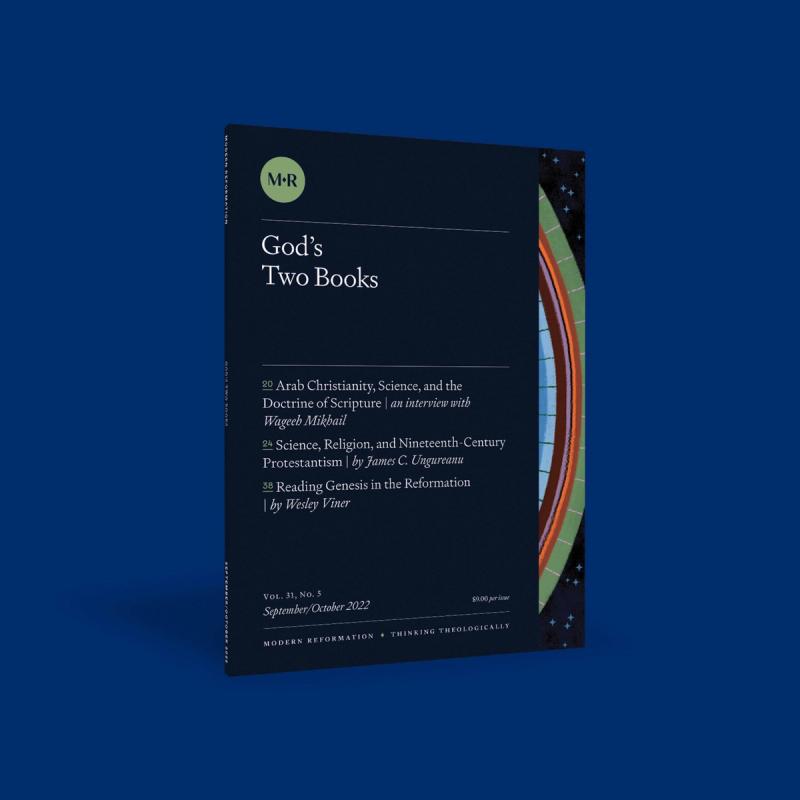This is a special issue of Modern Reformation. With it, we are wading into new waters that—to many today—may seem quite turbulent, even perilous: the relation of science to the Christian faith. As with all the issues of MR this year, we’re taking a historical approach rather than a theoretical one. In particular, we’re looking into the somewhat contentious and shadowed history of the relationship between Protestantism and the development of science in the Modern period.
Why this topic? Why now? I think it’s fair to say that there is a general and deep sense in the Western psyche—nearly intuitive by this point—that our scientific view of the world has put the Christian religion to flight. This isn’t a recent development—with, say, the shooting star that was the New Atheists. They managed to give it a particularly public (and vitriolic) voice, no doubt. But they were merely tapping into that sense that was already deep-seated. C. S. Lewis, for example, spoke of it back in the early 1940s:
It is a common reproach against Christianity that its dogmas are unchanging, while human knowledge is in continual growth. Hence, to unbelievers, we seem to be always engaged in the hopeless task of trying to force the new knowledge into moulds which it has outgrown. I think this feeling alienates the outsider much more than any particular discrepancies between this or that doctrine and this or that scientific theory. (Lewis, “Dogma and the Universe,” 1943)
The intuition is basically this: The more science is able to explain, the less God is needed as an explanation; and the less God is needed as an explanation, the fewer reasons we have for believing that God exists. In other words, there seems to be some conflict between science and the Christian faith. Many unbelievers simply regard this sense of conflict as a truism; for many believers, it remains a nagging doubt. For both, the intuition often goes unexamined. In this issue of MR, we want to examine it.
In our Converse section, James Ungureanu explores the rise and development of the “conflict thesis” in the nineteenth century. In the Persuade section, Wesley Viner writes about the debates in the early Modern period over the degree to which the Bible should be used as a source for our knowledge of the natural world. The story that begins to emerge from these historical surveys is quite different from the popular telling of our day.
In his Stone Lectures series delivered at Princeton University in 1898, Abraham Kuyper famously argued that “there is found hidden in Calvinism an impulse, an inclination, an incentive, to scientific investigation.” Whether that is true only of Calvinism is subject to debate. I rather think it is a Christian impulse to know the God of creation through that creation. Although following that impulse will inevitably raise difficult questions, we may pursue them in the assurance that all truth is of God.
Joshua Schendel Executive Editor





